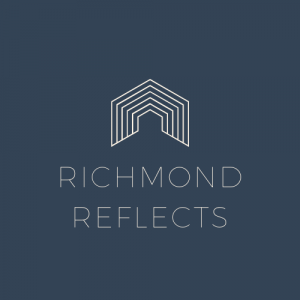So many of us have suddenly found ourselves spending a lot more time at home with our families, and one of the best things we can do to entertain ourselves, relieve stress, and bond, is to share stories from the past. Right now, remembering together can be a healing balm.
Sheltering in place has us thinking fondly about some of our more social times in Richmond.
When we reflect on the past and share stories at home or over video calls with our loved ones, we are engaging in the act of storytelling. People have always used storytelling as a way to share knowledge and entertain, and during these difficult times, it is a way to occupy our minds with topics that are new and exciting or familiar and comforting.
In this collective down-time, we have a wonderful opportunity to document our happy memories–to create a record of both how we enjoyed spending our time with others when we had the freedom to gather, and how we are spending our time during the COVID-19 pandemic.
In honor of the Preservation Week (April 26th-May 2nd) theme for 2020, Preserving Oral History, and to help us process and understand these trying times, we are launching “Richmond Reflects”. We would like to encourage people of all ages living in and around Richmond, to interview your family members, either in person or remotely, and record the interviews. Once you have them recorded, we ask that you share them with us so that we may create an archive of stories about how we coped during this crisis and how we, as a community, gather.
Recording How-To Guide
- First, wipe down that phone! It is important to thoroughly clean your device to prevent the possible spread of infection. It is also important to remember not to interview a sick person. If you or your subject are unwell, it is best to wait to record when healthy.
- Second, find a quiet space to record–preferably a room with a door you can close to minimize outside sounds, like television or cooking sounds. Keep windows closed to minimize traffic noise that might drown out the speaker.
- Locate and open the voice recording app on your phone:
- On iPhone → Voice Memos
- On Android → Different Android manufacturers have different pre-loaded voice recording software, but these programs usually have names like Voice Recorder or Audio Recorder. ASR Voice Recorder is also a good, free downloadable app.
- Switch your phone on airplane mode so that calls and notifications don’t interrupt the interview.
- Locate the microphone on your phone, make sure there’s nothing obstructing it (like your hands!), and point it towards your interview subject.
- Make sure the microphone isn’t too close or too far away from the person being interviewed. Do a sound test first to see if you can hear the audio when they’re speaking at a normal level into the microphone.
- Hit the red button to record! State your name and the date, then ask your subject to state their name. You can dive into the prompts, or use questions of your own. Either way, let the interview evolve organically, like a conversation (but try to let your subject do most of the talking).
- Hit the red button again to stop recording. After you’ve stopped recording, you should be able to edit the interview (in case your subject said anything they’d rather keep private).
- On iPhone → In Voice Memos, select your recording (default named “New Recording” in this app), hit the small blue dots in the bottom left corner of the recording file, and hit “Edit Recording.” → When the editing window pops up, hit the blue box in the upper right. → Drag the blue and yellow sliders to the section of the interview you want to delete, and hit “Delete” (but not “Trim”). → Hit “Done” to save.
- On Android → Unfortunately, this will entirely depend on your app, and some will have better editing capabilities than others. If you do want to edit your recording on your Android phone, try using a program like MP3 Cutter–but practice on a test recording before committing to any edits in your interview recording.
- Upload the file to your laptop or desktop by either emailing the file to yourself or connecting your phone via a USB cable (uploading to a desktop, laptop, or cloud storage also makes it easier to save the interview long-term).
- Wipe down that phone (again)!
Perspectives from all ages are important to documenting this time. For historical perspective, take a look at diaries kept during the 1918 influenza pandemic.
Here are some possible interview prompts to get you started:
- Tell me about the neighborhood you grew up in. Has it changed, and if so, how?
- What schools did you attend? Are you still friends with any of your classmates?
- Who were your best friends as a child? What did you like to do together?
- Do you have siblings? What games did you play together?
- How did your family vacation together when you were a child?
- What was the best trip you ever took? Who went with you and what did you do together?
- Where did you meet your husband/wife/partner?
- What was the happiest moment of your life, and who did you spend it with?
- How are you keeping in touch with your friends, and how often are you talking to/seeing them?
- What do you like to do with your friends?
- Have you been to any virtual parties? What do you/don’t you like about these?
- Do you have any siblings? How are you spending your time together?
- Are you doing any new activities that you didn’t used to do?
- What activities do you miss being able to do?
